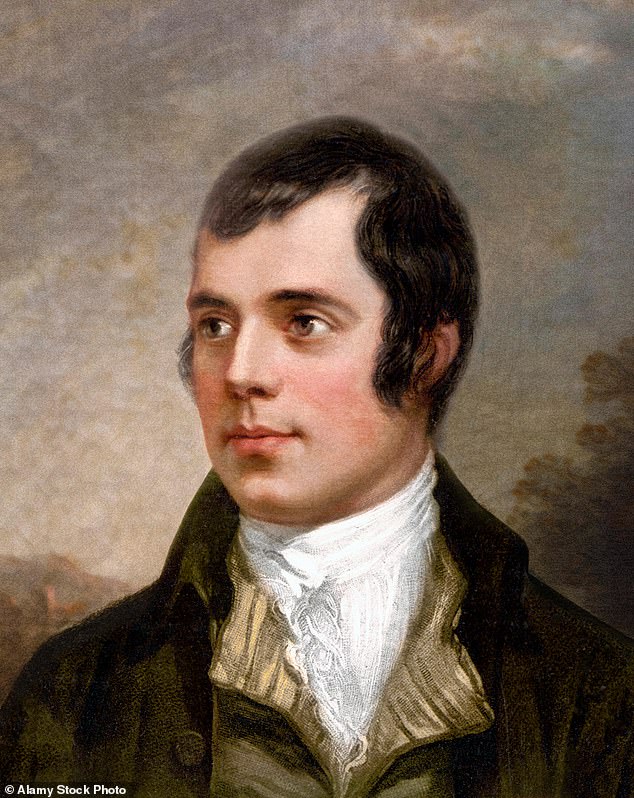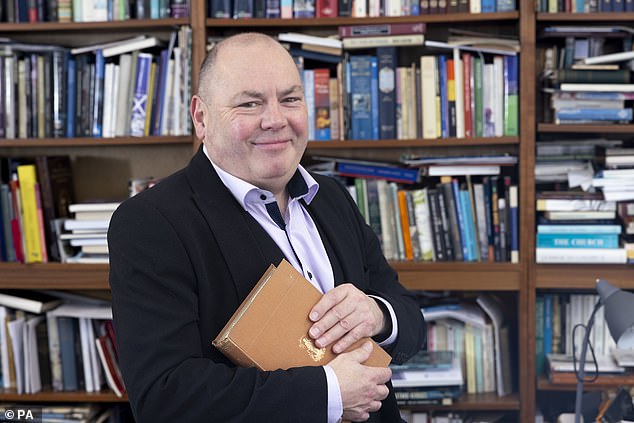- Education officials have removed his poetry from the core curriculum
- Classic texts are being pushed aside to feature modern writers in sweeping transformations to canon reading materials.
- For the latest news and sport from Scotland, click here to visit the Scotland home page.
For centuries, he has been globally recognized and revered for his straightforward poetry and witty commentary on the human experience.
Robert Burns has been relegated to history in Scotland by education officials, who have removed his poems from the core school curriculum.
Scotland's iconic poet, known as the Bard, will be replaced in secondary school set texts with more contemporary and diverse writers. This significant change aims to provide students with a broader and more representative literary landscape.
The Scottish Qualifications Authority has re-evaluated Burns, moving his standalone status as a writer and integrating his works into an anthology of Scottish poetry.
The SQA made the decision following a consultation on English set texts for National 5 and Higher English courses.
His works have been overshadowed by more contemporary and more relevant novels that focus on the lives of teenagers.
Critics strongly opposed the decision.
He stated, "We should never have enough of him, and it's vitally important that we equip our youth with ample opportunities to explore and study him."


'He has a truly remarkable talent with words, bordering on the extraordinary, which is reminiscent of Shakespeare, Joyce, and Blake.'
His impact on global literature cannot be overstated.
He stated to Scottish Field magazine: 'He is the man who broadcast Scotland's image throughout the world through its landscapes, music, and romanticism.
Robert Burns' artistic contributions create a profound Scottish tapestry, one of immense size and depth.
According to Dr Ronnie Young, Associate Director of the Centre for Robert Burns Studies at the University of Glasgow, "By opening the curriculum to a wider range of writers, voices, and experiences, the SQA acknowledges the continued relevance of Scottish literature to the curriculum and its potential to connect with a diverse student audience."
The contentious overhaul has resulted in other renowned figures being effectively demoted as well.
Lewis Grassic Gibbon's classic novel "Sunset Song" will be removed from the list of texts that are required study for students pursuing Higher English.
The SQA recognized the cultural importance of Burns' work but noted that public interest in it has significantly decreased.

Out of 35,000 students who took the Higher English exam last summer, only 83 decided to answer a question about Burns.
Excluded excerpts also include The Cheviot, the Stag and the Black, Black Oil by John McGrath, a 1970s play that scrutinizes Scottish history through a radical socialist perspective, and The Cone Gatherers by Robin Jenkins.
The SQA emphasized that their updated list of Scottish set texts resulted from a consultation that garnered over 2,500 responses. 'The feedback we received was clear,'
Robert Quinn, the SQA's head of English, stated: "This is the first review and update of the Scottish set text list since 2018 and rightly it was an opportunity to consider the titles on it and assess how teachers and learners engage with these works and see if and where any changes were necessary."
"The feedback was clear-cut. Teachers and lecturers expressed a wish to preserve the most popular texts, but they also sought a list that is diverse and relevant to learners.
We have received feedback from learners indicating a preference for updated and diverse reading materials featuring modern themes, emotionally engaging content, and challenging discussions as part of the revised course list.
Teachers and instructors can now use this approach to introduce learners of National 5 and Higher to multiple new poets, who will join not only Burns but also other influential writers in the list.
New titles include "Duck Feet" by Ely Percy, a coming-of-age novel set in a school in Renfrewshire; the Gaelic antiwar play "Sequamur" and poems by Imtiaz Dharker, who was born in Pakistan but grew up in Glasgow.
Read more